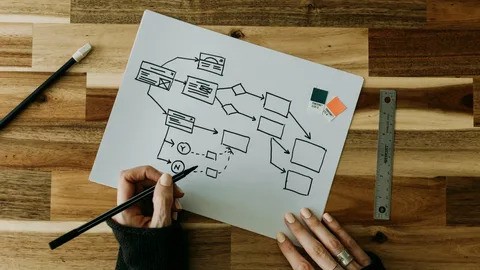The filmmaking process has always been complex, requiring a blend of creativity, technical expertise, and logistical planning. However, advancements in technology, particularly in artificial intelligence (AI), are transforming how filmmakers approach their craft. With AI tools, filmmakers can streamline their workflows, enhance collaboration, and boost overall productivity. In this article, we’ll explore the top AI tools for filmmakers and how they can revolutionize your filmmaking process.
1. Pre-Production: Planning and Scripting
AI Script Writing Tools
The foundation of any successful film is a compelling script. AI-driven scriptwriting tools can assist writers by generating ideas, suggesting dialogue, and even creating complete scripts based on initial concepts. Tools like Final Draft and Celtx offer AI-enhanced features that can analyze story structure and suggest improvements.
For instance, ScriptAI uses machine learning algorithms to understand narrative elements, helping writers craft engaging plots while saving time on revisions. With the ability to analyze character arcs and plot points, these tools not only make writing easier but also help ensure that the script resonates with audiences.
AI Storyboard Generators
Once the script is finalized, the next step is to visualize the story. AI storyboard generators can assist filmmakers in creating detailed visual representations of scenes. These tools take the written script and generate storyboards automatically, allowing filmmakers to visualize their scenes without needing to draw each frame manually.
Using an AI storyboard generator from script can significantly reduce the time it takes to create storyboards, making it easier for directors and cinematographers to plan shots effectively. Tools like Storyboard That and Boords allow filmmakers to upload their scripts, generating storyboards that can be customized for specific scenes.
2. Production: Filming and Directing
AI Camera Systems
During the production phase, capturing high-quality footage is paramount. AI camera systems are becoming increasingly popular in the industry, providing filmmakers with advanced features such as automatic focus tracking, exposure adjustments, and scene recognition. Cameras equipped with AI capabilities, like the Sony FX6 and Canon EOS R5, can analyze scenes in real time, ensuring optimal settings for lighting and focus.
Additionally, some AI tools can assist with camera movements, allowing for smooth transitions and dynamic shots that enhance storytelling. This technology not only improves the quality of the footage but also saves time during filming.
Virtual Production Tools
Virtual production is revolutionizing how filmmakers create their projects. Using AI and real-time rendering, tools like Unreal Engine allow filmmakers to visualize and modify virtual sets while filming. This technology enables directors to make immediate changes to backgrounds and environments, providing more flexibility during production.
Filmmakers can create immersive worlds without the need for extensive physical sets, reducing costs and time associated with traditional filmmaking. Moreover, with AI-driven character animation tools, filmmakers can populate their virtual sets with lifelike characters, further enhancing the visual experience.
3. Post-Production: Editing and Visual Effects
AI Video Editing Software
Editing is often one of the most time-consuming aspects of filmmaking. However, AI video editing software is changing the landscape by automating various editing tasks. Tools like Adobe Premiere Pro and DaVinci Resolve offer AI-driven features that can analyze footage, suggest edits, and even create rough cuts based on preset parameters.
For instance, Adobe Sensei, integrated into Adobe’s Creative Cloud, uses AI to automatically tag clips, analyze shot composition, and suggest transitions. This technology allows editors to focus on the creative aspects of their work rather than getting bogged down by tedious tasks.
AI-Based Visual Effects (VFX)
Visual effects are essential in modern filmmaking, but creating high-quality VFX can be resource-intensive. AI tools like DeepArt and Runway use machine learning algorithms to streamline the VFX process. These tools can generate stunning effects based on a few input images, making it easier for filmmakers to achieve their desired look without extensive post-production work.
Moreover, AI can assist in rotoscoping, motion tracking, and even color grading, enabling editors to achieve professional results more efficiently. This not only saves time but also allows for greater creative experimentation.
4. Distribution: Marketing and Audience Engagement
AI-Driven Marketing Tools
Once the film is complete, the next challenge is reaching the audience. AI-driven marketing tools can help filmmakers craft effective marketing strategies by analyzing audience data and predicting trends. Platforms like Google Analytics and Hootsuite provide insights into audience behavior, helping filmmakers tailor their promotional efforts.
For instance, AI can analyze social media engagement and viewer preferences, allowing filmmakers to create targeted campaigns that resonate with their audience. Additionally, tools like Vidooly use AI algorithms to optimize video content for various platforms, increasing visibility and reach.
Audience Engagement Platforms
Engaging with audiences is crucial for the success of any film. AI-powered platforms can enhance audience interaction, enabling filmmakers to gather feedback and foster a sense of community. Tools like Crowdcast and Discord leverage AI to create engaging experiences through live Q&A sessions, virtual screenings, and discussions.
These platforms allow filmmakers to connect directly with their audience, providing valuable insights into viewer preferences and reactions. By using AI to analyze engagement data, filmmakers can refine their marketing strategies and create more impactful content in the future.
5. Future Trends in AI Filmmaking Tools
As AI technology continues to evolve, filmmakers can expect even more innovative tools that will streamline their workflows. Emerging trends include:
- AI-Generated Content: The ability for AI to generate entire scenes, dialogue, or even entire films based on specific inputs will change how stories are told. This technology can help filmmakers explore new narratives and experiment with different genres.
- Enhanced Collaboration: AI tools that facilitate collaboration among creative teams will become increasingly important. Platforms that allow seamless sharing and feedback on projects will enhance communication and ensure that everyone is on the same page.
- Personalized Viewing Experiences: AI will play a significant role in creating personalized content for viewers, allowing filmmakers to tailor their projects to specific audiences. This could involve generating alternative endings or character arcs based on viewer preferences.
Conclusion
The integration of AI tools into the filmmaking process is not just a trend; it represents a fundamental shift in how stories are created and shared. From pre-production planning to post-production editing and audience engagement, AI tools are streamlining workflows and enhancing the creative process for filmmakers.
By leveraging these tools, filmmakers can save time, reduce costs, and focus on what they do best—telling captivating stories. As technology continues to advance, the possibilities for AI in filmmaking are limitless. Whether you’re a seasoned filmmaker or just starting, embracing these AI tools can help you navigate the ever-evolving landscape of the film industry with greater ease and creativity.



